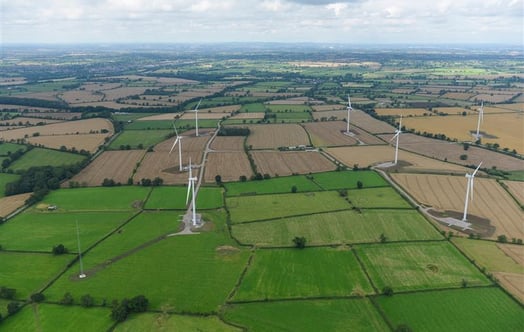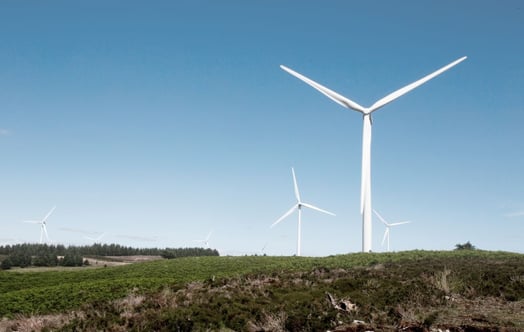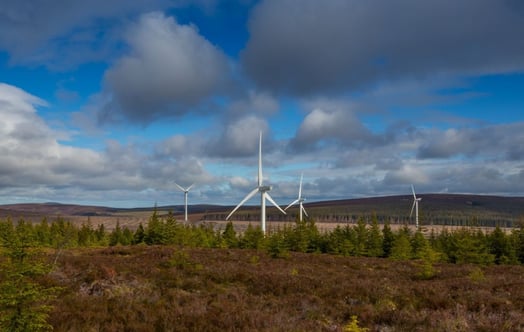
Net zero – what does it really mean?
Net zero has been at the heart of debate on climate change for a long time, but for many, uncertainty still surrounds the term. Few people are better suited to explain what net zero means than Mark Radka, Chief of the Energy and Climate Branch of the United Nations Environment Programme, UNEP.
A deep commitment to environmental issues often starts close to home. For Mark Radka, one of the defining events of his youth was the Love Canal disaster. Toxic waste dumped for decades in a landfill near Niagara Falls in rural upstate New York started to affect the health of local residents. The landfill was not far from where Radka grew up in the 1970s.
“It wasn’t much more than a ditch, but they filled it with waste and when it had reached its capacity, they just put dirt over it. After a while, the city built a school and homes on the site and soon chemicals started leaking. It became a very visible local, as well as national, environmental issue for me. An example of things gone wrong.”
The Love Canal scandal and the growing general interest in the environment in 1970s America – with the National Environmental Policy Act, the Clean Water Act, and the Clean Air Act – made Radka’s career direction clear for him. In 1986 he started at the UN, and apart from a brief spell in the late 80s and early 90s when he went back to school and worked for a Washington D.C. environmental firm, he has been there ever since.
Today, Radka is Chief of the Energy and Climate Branch at the UNEP. One of the UNEP’s key issues is net zero. Two words that have been, and still are, at the centre of the climate change discussion, but remain somewhat unclear for a lot of people.
“Net zero means that the quantity of greenhouse gases going into the atmosphere should not result in an increase in their concentrations. So, you don't want any more going in than is removed naturally. Net zero means no net change in the concentration of gases in the atmosphere. If more is going in than is coming out, then the concentration goes up. If less is going in than is taken out, the concentration goes down. The concentration of greenhouse gases is important because it determines how much warming occurs, the new equilibrium in a sense.“
Part of the uncertainty surrounding the term “net zero” comes down to language. To how you inform and communicate. Radka is a strong believer in keeping it simple.
“I think there's a tendency to use language that can be confusing to non-specialists. You can't expect everyone to be an expert on climate change. If you use language that’s too difficult, you’re not showing respect for your audience. And that doesn't mean you should be talking down; it just means putting it in words that people can relate to.
Most of all, net zero is a way to stabilize temperatures and slowing down a process that is going the wrong way alarmingly fast.”
“As long as we continue to release greenhouse gases the problem is only going to get worse. If you reach net zero then in theory, the temperature stabilises. Hopefully it could stop at one point five degrees above pre-industrial level, the aspirational goal in the Paris Agreement, or at two degrees. Four degrees is another possible outcome, but then you're really in the territory where we really don't understand the whole system dynamics. So net zero at whatever concentration kind of equates to a temperature rise.”
Radka underlines the urgency of reaching net zero sooner rather than later. The Paris Agreement calls on signatories to reduce emissions by 45 per cent by 2030 and to achieve net zero by 2050. But Radka stresses that we need to do much more now.
“Say your doctor tells you you're overweight and motivates you to lose some extra pounds or kilos of weight before the summer. If you start in January maybe with discipline you can reach your ideal weight, or at least you can get pretty close. If you wait until May, it's really difficult and you need an extreme and maybe impossible diet. So, the idea is to get on a trajectory that takes us down to net zero with interim milestones.”
To get to net zero all parts of society need to do their part – governments, industries, companies, individuals.
“Ideally every company, every country, every entity, that has decisions to take would be moving toward net zero. And since you have a target of 2050, a long way off, you need milestones, you need interim targets, you need to be measuring and reporting it in a way that is verifiable. The whole system is going to depend on people doing what they say they're going to do and everyone being able to measure and account for that. So, net zero is great, but if it's just a statement of aspiration and you only start doing something in five years, then it's not sufficient by any means.“
Net zero in numbers
The Science Based Targets initiative, SBTi, is a partnership between the United Nations, World Resources Institute, the World Wide Fund for Nature and the charity CDP. The SBTi’s requirements for the power sector, when referring to net zero, means:
- Reducing scope 1 + 2 CO2e intensity to 9 g/kWh (over 90% reduction)
- Reducing all scope 3 emissions by 90% or more
- Neutralizing the remaining emissions with carbon removals
Scope 1: Direct emissions from things that the emitter owns or controls.
Scope 2: Indirect emissions created by the production of the energy that is bought.
Scope 3: Indirect emissions produced by customers using the company’s products or those produced by suppliers making products that the organisation uses.
Subscribe to our newsletter
Do you want to read more interesting stories on climate smart energy and sustainability?



